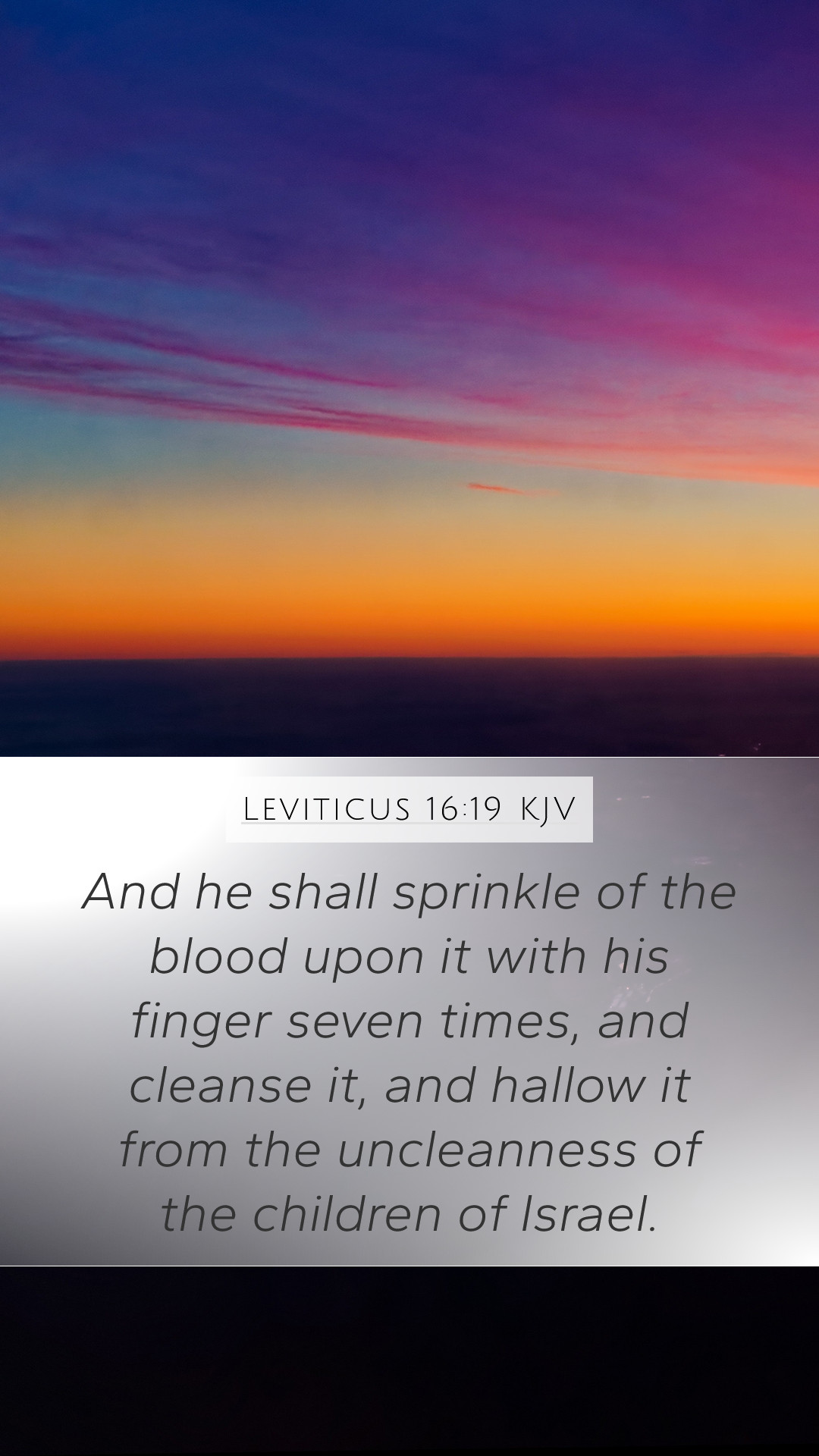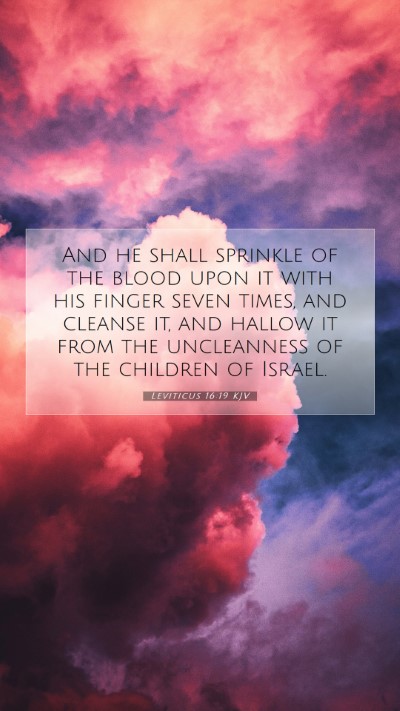Understanding Leviticus 16:19
Leviticus 16:19 states: "And he shall sprinkle of the blood upon it with his finger seven times, and cleanse it, and hallow it from the uncleanness of the children of Israel." This verse is part of the description of the Day of Atonement, a significant event in Israel's religious calendar that illustrates profound theological principles. Below, we delve into the Bible verse meanings, interpretations, and understandings of this crucial scripture, drawing insights from prominent public domain commentaries.
Contextual Significance
This verse requires an understanding of its context within the rituals of atonement described in Leviticus 16. The Day of Atonement involved essential ceremonies for the purification of the people, the tabernacle, and the altar. Matthew Henry notes that the act of sprinkling the blood symbolizes the removal of sin and purification (Matthew Henry's Commentary). Adam Clarke emphasizes that this ritual points to the importance of blood in the sacrificial system, which serves as a prefigurement of Christ's ultimate sacrifice (Clarke's Commentary).
Symbolism of the Blood
The blood mentioned in this verse holds significant biblical symbolism. In ancient Israel, blood was seen as the life force (Leviticus 17:11), and the act of sprinkling it communicates a transfer of guilt and the establishment of a covenant (Barnes' Notes). In Christian theology, this ritual foreshadows the redemptive work of Jesus Christ, reinforcing the concept of atonement as a central theme in both the Old and New Testaments.
The Number Seven
The act of sprinkling the blood seven times is not merely procedural but carries numerical significance. Seven is often associated with completeness and divine perfection in Scripture. Henry suggests that this illustrates the thoroughness of cleansing required for both the altar and the people, indicating that God's requirements for holiness are complete (Henry's Commentary).
Theological Implications
There are substantial theological implications in this verse:
- **Atonement**: It emphasizes the concept that atonement is necessary for reconciliation with God.
- **Sacrifice**: The need for blood signifies the gravity of sin and the high cost associated with redemption.
- **Divine Holiness**: The purification of the altar indicates God's holiness and the required moral state of His people.
Practical Application
How can we apply the teachings of Leviticus 16:19 to our daily lives? Understanding this scripture encourages believers to reflect on the seriousness of sin and the profound mercy of God. It can serve as a catalyst for self-examination and a reminder of the need for continual repentance and cleansing through Christ (Barnes' Notes).
Related Scripture Cross References
Leviticus 16:19 is related to several other verses that enhance its understanding:
- Hebrews 9:22: “And almost all things are by the law purged with blood; and without shedding of blood is no remission.”
- Leviticus 17:11: “For the life of the flesh is in the blood…”
- Romans 3:25: “Whom God hath set forth to be a propitiation through faith in his blood…”
Conclusion
In conclusion, Leviticus 16:19 is a scripture rich in meaning and symbolism, emphasizing the necessity of atonement through blood as a means of cleansing and reconciling with God. For those engaging in bible study or seeking bible study insights, this verse fosters a deeper understanding of the significance of Jesus’ sacrifice and God’s demand for holiness. By reflecting on this passage, believers can appreciate the weight of sin and the corresponding grace afforded through faith.


